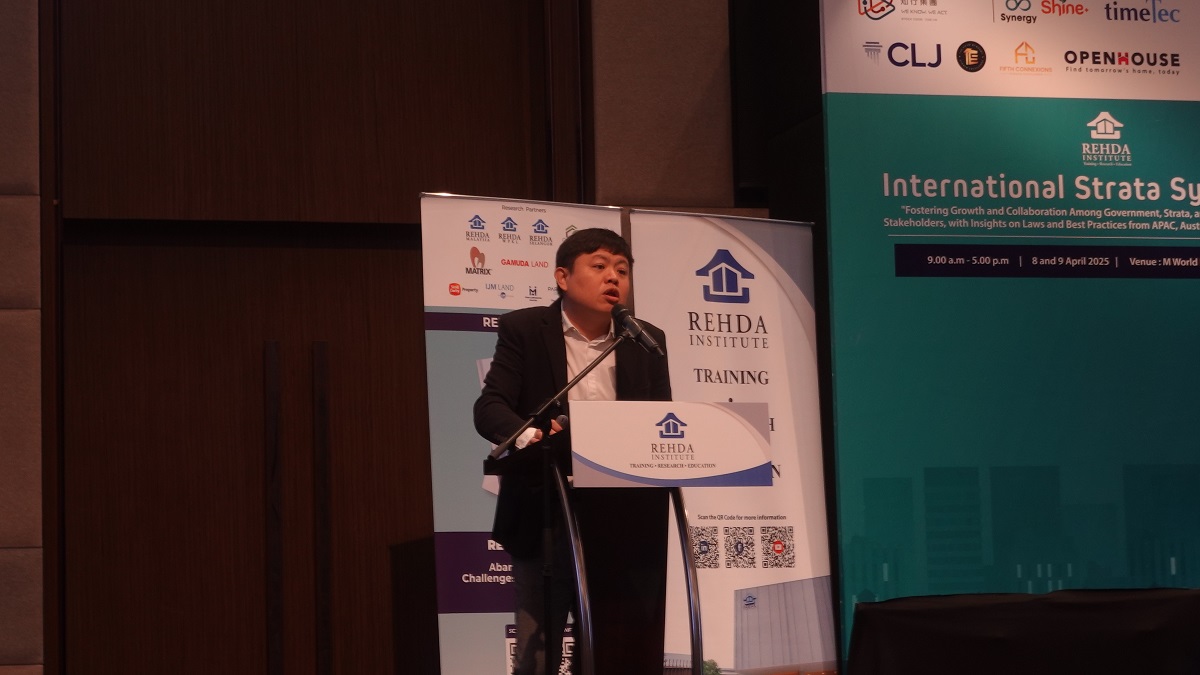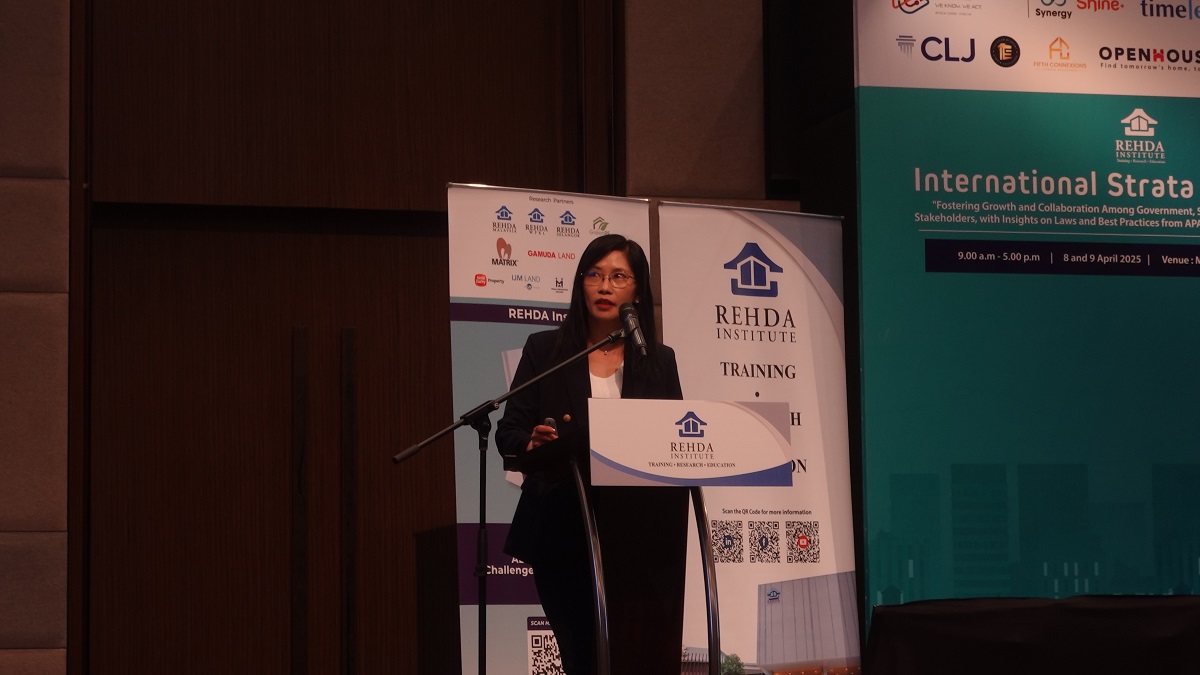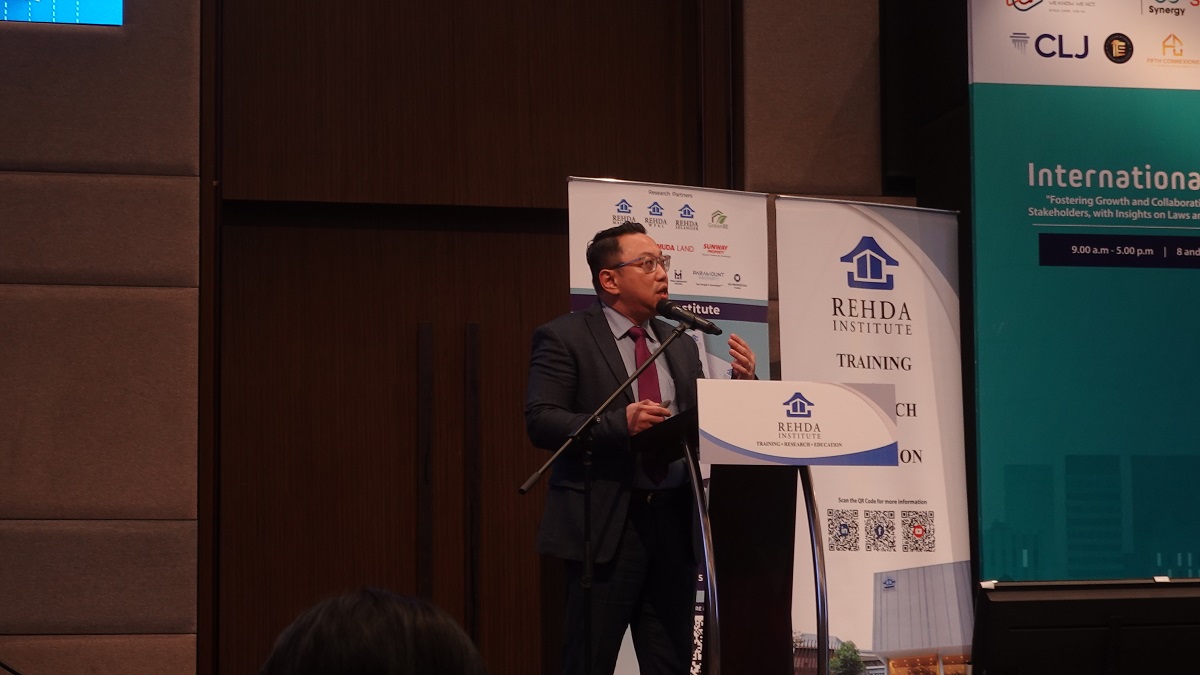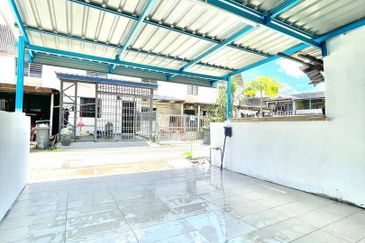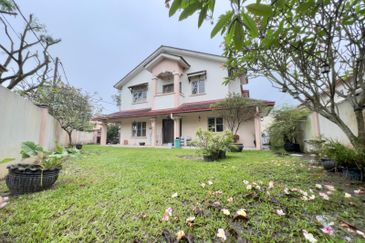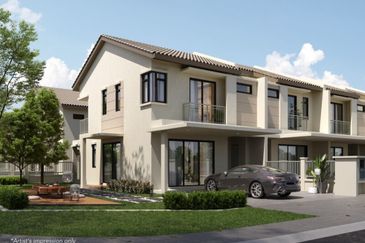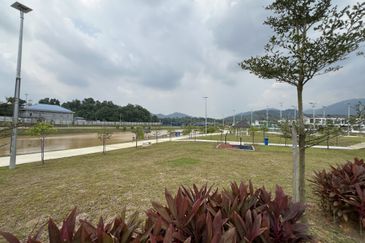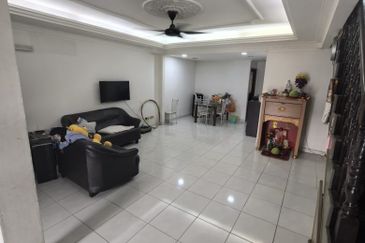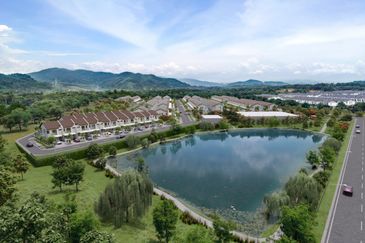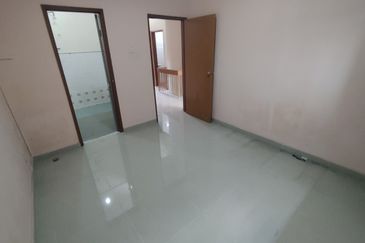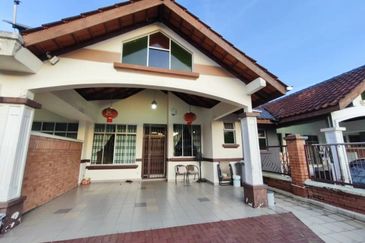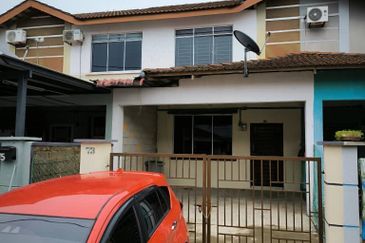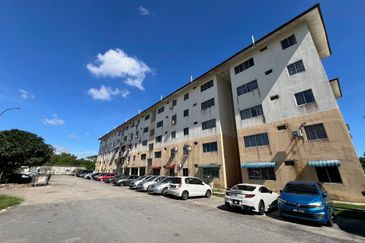- “If you have multiple phases, there are still some issues and grey areas that need to be addressed … We’re seriously looking into it with the government now, hoping that [the old act will be] overhauled to address these issues, especially those concerning strata management,” Tan said.
PETALING JAYA (April 10): Policy makers are working together with legal experts to refine legislations to address issues that have arisen in strata management, especially in regards to multiple-phase developments, says a Malaysian law practitioner.
Law firm Chur Associates founder and managing partner Chris Tan said that the current Strata Management Act (SMA) 2013 (Act 757) and Strata Titles Act (STA) 1985 (Act 318) are not comprehensive enough because they are only premised on single-phase developments.
“If you have multiple phases, there are still some issues and grey areas that need to be addressed … We’re seriously looking into it with the government now, hoping that [the old act] is overhauled to address these issues, especially those concerning strata management,” Tan said at the International Strata Symposium 2025.
Hosted by the independent research think tank Real Estate and Housing Developers' Association Malaysia (Rehda) Institute, the symposium was held on Tuesday at M World Hotel here in conjunction with Malaysia’s ASEAN Chairmanship in 2025. The event, attended by more than 280 regional industry stakeholders, marked a significant moment for the Malaysian housing sector with the official launch of Rehda Institute’s research report titled "Abandoned Housing—Challenges, Insights & Solutions". EdgeProp Malaysia is the event’s media partner.
Reconciling conflicting interests in mixed-use projects
“We live in a society; no one lives on an isolated island. In the context of strata living, the government has drafted policies to enhance the community living experience. Certain expectations need to be managed, and the SMA 2013 facilitates collaboration among the government, strata and property management, and stakeholders,” said Tan in his presentation.
According to him, there were 2.89 million strata units as of end-December 2024; and more are emerging. From the STA 1985 until the SMA 2013, there have been clearer boundaries between ownership and management in strata buildings, but he pointed out that one of the key challenges in Malaysia is mixed-use development.
“If you were in a [mixed-use] residential strata development, you probably would want to enjoy the [tranquility]; you wouldn’t want to have people coming in and out of your living space. Whereas, if you were in a [mixed-use] commercial development, you would want high-traffic consumers; you would want people to visit you. This is a challenge for developers — to harmonise the commercial and residential elements in mixed-use developments, especially to address the expectations of a strata community and avoid [potential] disputes,” Tan said.
Besides Tan, the international Strata Symposium 2025 also heard from regional leaders in strata property management, governance, and innovation. This year’s speakers — from Singapore, Hong Kong and Indonesia — offered invaluable cross-jurisdictional insights, especially for Malaysian authorities drafting new laws to reform the SMA 2013.
Singapore: extra stamp duty to curb excessive en-bloc sales
Singapore law firm Shook Lin & Bok LLP partner Kenneth Szeto pointed out that 80% of Singapore residents live in Housing & Development Board (HDB) properties. The remaining comprised 5% in landed homes and 15% in private strata buildings.
Currently, the strata title-property framework in Singapore has two key pieces of legislation — the Land Titles Strata Act and the Building Maintenance Strata Management Act (BMSMA).
According to him, a particularly distinctive aspect of Singapore’s strata property landscape is the concept of collective sales, often referred to as “en bloc” sales. This mechanism allows the majority of owners within a development to compel the minority to sell their units.
“Singapore en-bloc sales threshold was 100% consensus in the past, especially with a larger development. The rules were relaxed in 1999 and reduced to 90% for developments 10 years old and less, and 80% for developments over 10 years old.
“In 2007, the Singapore government decided to change the law to include the unit sizes as well when they looked into the consensus. The reason is, in the early days, the developers would just ascribe everybody who would like to sell their properties the same share value in an en-bloc sale, so even the penthouse and the four- or five- bedroom units had the same share value as a two-bedroom unit, which upset a lot of people with larger units,” Szeto explained.
However, he stressed that to curb speculative activities and fluctuations in the property market, the Singapore government also intervened with measures such as the Additional Buyer’s Stamp Duty (ABSD) for developers acquiring residential land, which aims to avoid excessive en-bloc activity and its potential disruption to existing communities.
Hong Kong's strata ordinances frequently updated
Hong Kong, a densely populated metropolis, presents a unique landscape for property ownership, particularly within its numerous high-rise buildings.
Hong Kong law firm Withersworldwide partner Polly Chu shared that in Hong Kong, except for a church — St John’s Cathedral — that is freehold, all other lands are leaseable — landed or non-landed.
She highlighted that the cornerstone of strata management in Hong Kong lies within its legal ordinances, primarily the Building Management Ordinance (BMO) and the Land Registration Ordinance. The BMO serves as the primary legislation governing the operation of building management, outlining the formation and powers of owners' corporations, decision-making processes, and the responsibilities of management bodies.
“However, the legal framework for strata management in Hong Kong is not static. The most recent development is the BMO amendment in 2024, set to take effect in July this year,” Chu pointed out.
She indicated that the amendment of the ordinance aims to target pain points such as collusion in maintenance procurement and the need for in-person voting for significant financial decisions. It also introduces stricter requirements for audited financial statements for large-scale projects and criminalises the failure to maintain essential building records. These measures underscore the government's commitment to enhancing transparency, accountability, and fairness in strata management.
Low owner-occupancy compounds strata management difficulty in Indonesia
The landscape of strata development in Indonesia presents a unique set of challenges and opportunities. Indonesian law firm Makarim & Taira partner Vincent Ariesta Lie pointed out that under Law No. 20 of 2011, also known as the "Apartments Law" in Indonesia, developers are obligated to establish and transfer management rights to the Owners and Residents Associations (ORA) upon completion of strata developments, but in reality, that often does not happen.
“The urban centres of Indonesia, such as Jakarta and Surabaya, see a significant portion of apartment purchases driven by investment motives. This results in a low occupancy rate, sometimes as high as 70%, creating a substantial issue in forming a representative ORA,” Vincent said.
He emphasised that in some rural strata communities, the individuals involved may lack the professional expertise required to effectively manage the complex buildings and engage with third-party service providers. This can lead to issues surrounding the management of the property, including the mismanagement of funds and the appointment of favoured contractors for maintenance, which could lead to criminal cases.
Want to have a more personalised and easier house hunting experience? Get the EdgeProp Malaysia App now.
TOP PICKS BY EDGEPROP
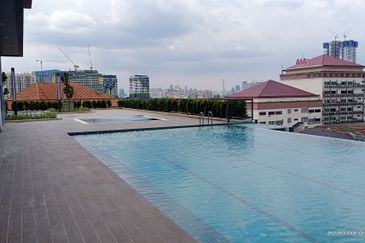
The Sky Residence @ Shamelin
Cheras, Kuala Lumpur
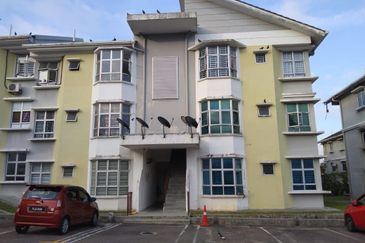
Vista Seri Alam, Bandar Baru Seri Alam
Masai, Johor
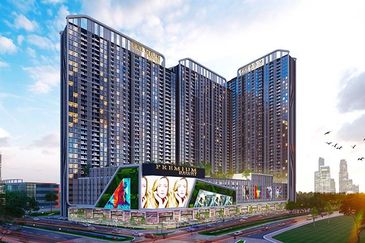
Premium Height @ Bandar Dato Onn
Johor Bahru, Johor
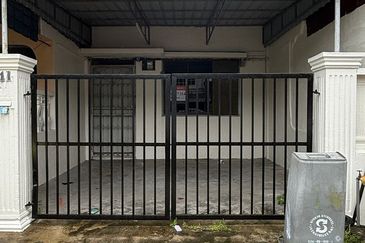
Bandar Baru Permas Jaya
Permas Jaya/Senibong, Johor
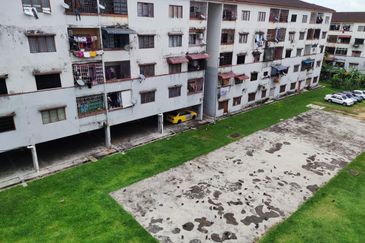
Flat Tasek 64, Bandar Baru Seri Alam
Masai, Johor
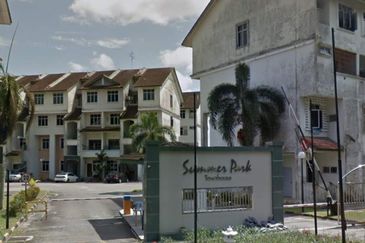
Summer Park Townhouse (Pangsapuri Alam Jaya), Bandar Baru Seri Alam
Masai, Johor

Pearl Suria
Jalan Klang Lama (Old Klang Road), Kuala Lumpur
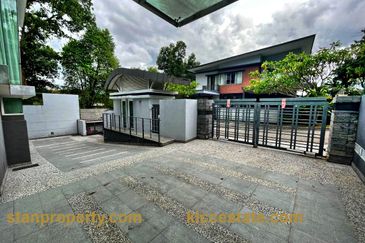
Country Heights Damansara
Country Heights Damansara, Kuala Lumpur

The Hipster @ Taman Desa
Taman Desa, Kuala Lumpur

Subang Jaya City Centre (SJCC) : Teja
Subang Jaya, Selangor

